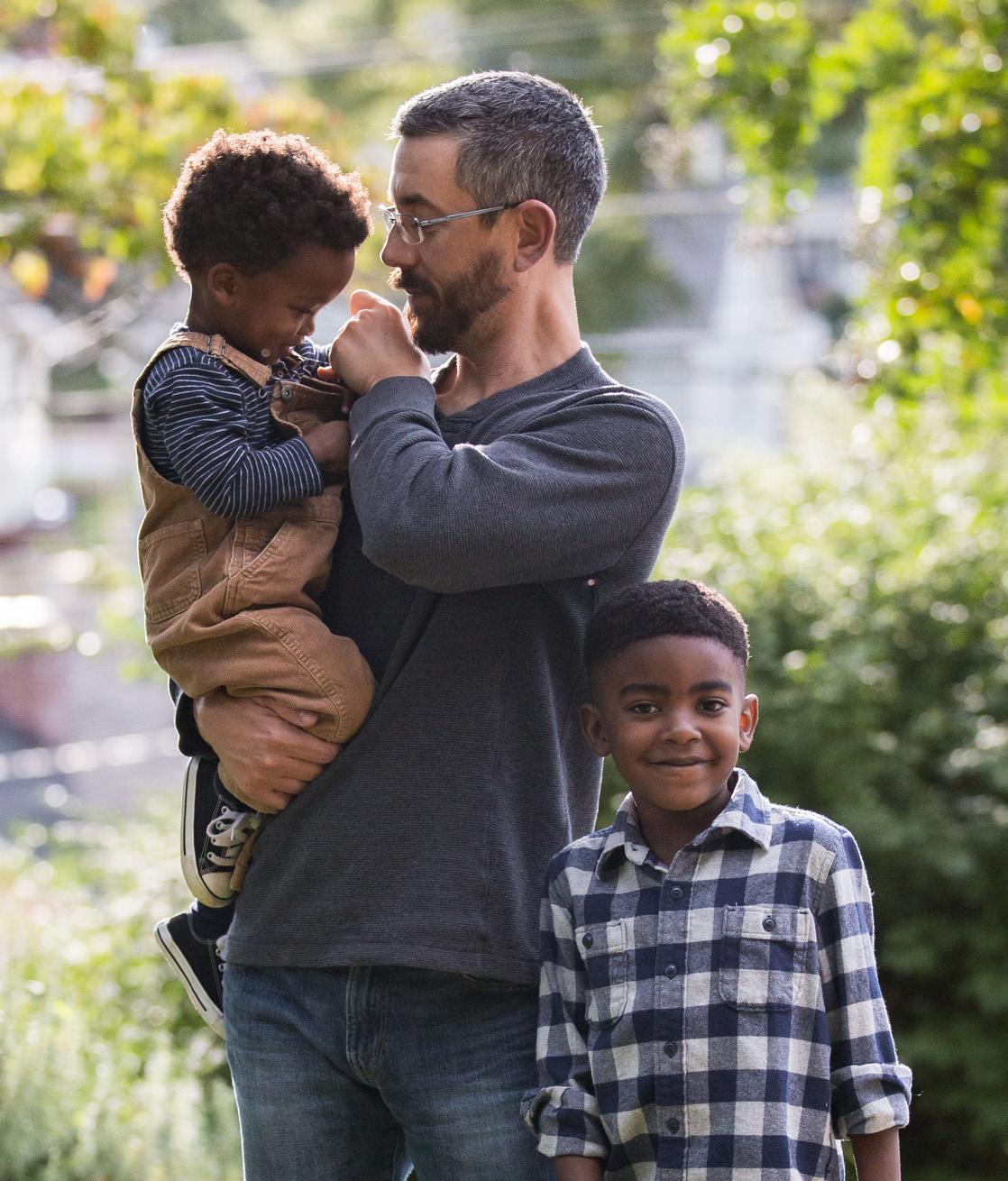BIRTH FOSTER FOREVER
FA M I L Y
O P E N I N G
T H E
The general culture of talking about a child’s adoption has shifted over the past few decades. Being open with a child about his or her adoption is now much more commonplace. However, for parents, talking about birth parents can often cause feelings of fear, insecurity, or inadequacy. As shepherds of their children’s hearts, though, parents must recognize that a child’s understanding of his identity and self-worth is connected to his family of origin. By talking openly, parents give children the freedom to safely explore the emotions and thoughts that are so closely tied to their story. Giving children permission to love all families from their story strengthens relationships and provides a solid foundation for understanding their past, not being ashamed of who they are, and navigating life in a healthy way. Talking with children in the foster care system about their families may also be uncomfortable for foster parents, particularly when circumstances are challenging. Nevertheless, having an age-appropriate and truthful understanding of their birth family and past will help children move toward their future with confidence and hope. In light of the importance of this topic and practice, Traci Newell, a personal and professional expert in adoption education and family reconciliation at Lifeline, shares helpful insights and guidelines about talking with your children about their birth parents. HOW DO YOU INTRODUCE YOUR CHILD(REN) TO THE IDEA OF BIRTH PARENTS? The phrase “birth parent” should be introduced to children who were adopted into their families or placed into foster care from an early age. You can acquaint your child with the concept of “birth family” from the beginning by openly talking about different kinds of families: birth families, forever families, and foster families. Books with colorful illustrations and simple language can be very effective tools. If this is a topic that you have not covered with your child, and he is now older, it is never too late to start. If your child is curious but not asking questions, it could be that he is fearful of hurting your feelings. You can take opportunities, such as birthdays and other special occasions (Mother’s Day, Christmas, etc.) to start the dialogue. For example, you might say something like, “Today is such a special day. I wonder if it makes you think about your birth mom or birth dad because I have been thinking about them.” It is Fall 2020
D O O R S
important that you follow their cues, though, and don’t push if you encounter resistance. If your child is older and was placed into your home through foster care, it is important to acknowledge his birth parent(s) as his parents and call them by the name(s) your child has assigned to them. HOW DO YOU ANSWER QUESTIONS IF YOU DON’T KNOW THE ANSWER? (In Adoption) Be honest. By responding, “I am not sure, but I will try to find out” you communicate that you are not withholding information and that it’s an important question to you. If the question is tied to something nonspecific about your child, like the place where he was born, you may even involve them in your investigation. If you believe the question could lead to the discovery of difficult information, assure your child that you are committed to find out what you can. Discerning when your child is ready to receive certain parts of their story can be tricky, but usually if they are asking, they are ready. For some children, there are lingering questions about their birth. If you were not present for your child’s birth and you do not have records from the hospital, then you may not be able to gather specific information. If not, it is ok to speculate as long as you do not make up details of the birth. For example, you may say: “Many babies are born in a place called a hospital.” “You probably cried a lot because the world was brand new to you.” “I bet you were a beautiful baby.” “I sure do wish I could have been there to see you.” Acknowledging your sadness that you missed parts of your child’s life is ok. Grief can feel isolating if it is not shared. Make sure that your grief does not overshadow theirs and that the discussion stays child-focused. (In Foster Care) Because shared parenting is an important part of foster care, it is important that the adults in your child’s care are telling him the same story. When possible, collaborate with your child’s birth parent(s) and social worker to determine what he already knows and what the birth parent(s) would like him to know. Relying on the social worker to collect as much information as possible is important, and you may need to ask questions of the child, too. If your child was in a previous placement, you may need to gather information from his former foster family, and if your child does not have a life book (with pictures and information about important milestones), it is not too late to create one.
- 18 -
lifelinechild.org






